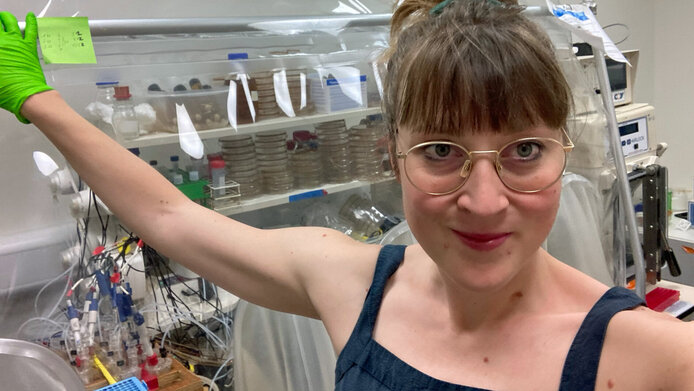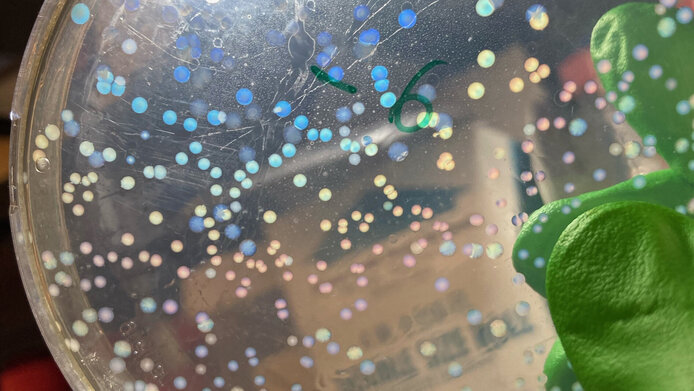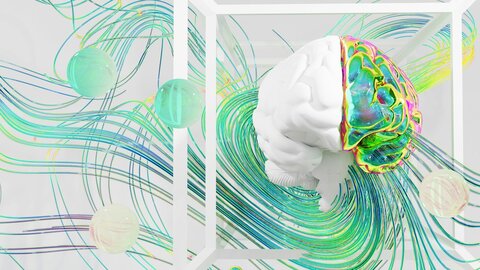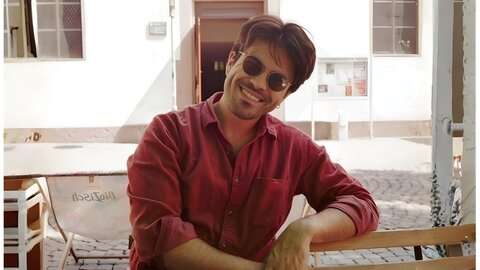Investigating gut bacteria in Oxford

The best way to have enriching experiences as a researcher is to get out of your comfort zone. For me, this meant moving to England with my husband, an immunologist, and our two daughters (3 months and 3 years old) during lockdown in the spring of 2021. When we were allowed to leave our small terraced house for the first time after ten days of quarantine and strolled into the incredibly green, historic city of Oxford, we were immediately enchanted. It wasn't long before we had explored all the parks, meadows, and museums on our cargo bike.
For my partner and me, a scientific hub like Oxford was the perfect solution to our “two-body problem.” We both found the working groups of our dreams here. As a researcher and mother, the Schrödinger grant helped me cover the childcare costs for both of our children, especially after a year of unpaid maternity leave, which involved moving to post-Brexit Britain. In our first few months in England, during my maternity leave, contact with home was very important to me and I worked with my PhD supervisor on finalizing a manuscript. For my doctoral thesis, I investigated the evolution of coliform bacteria in the lab. The results were exciting, but one question remained: Would the same evolutionary processes happen in the real world, for example in the intestine where E. coli normally occurs?
The microbiologist Isabella Tomanek is fascinated by how the interplay of ecology and evolution shapes microbial communities such as the one inside our gut.
How bacterial communities in the gut work together
In my postdoc work, I wanted to look beyond my field of expertise as a bacterial geneticist. Outside the laboratory, E. coli is part of a diverse bacterial community where hundreds of bacterial species compete for nutrients, but also sometimes “help” each other. These interactions between bacteria determine how well the intestinal ecosystem (biome) works. In my postdoc work, I am studying many different gut bacteria together, including the rainbow-colored ones in the picture. These are cultivated in small oxygen-free bioreactors in an anaerobic chamber (see image). I’m interested in the stability of these different bacterial communities, as well as other questions, like: If bacterial communities are disturbed – for example by taking antibiotics – how long does it take for them to return to their original state? Incidentally, my two daughters, who are now half-British, find my research very funny and like to say, “Mommy is a poo scientist.”
“Everyone has their roots from somewhere else”
Since my doctoral thesis at ISTA in Klosterneuburg, I was used to working with people from different disciplines and countries. Science is most exciting when it knows no boundaries. I’m very grateful that the Schrödinger grant has given me the opportunity to become part of this scientific community, which is international and open-minded.
It was easy for us to gain a foothold in England. The people here are just as friendly as you'd imagine, and in a city like Oxford, everyone has their roots from somewhere else. Oxford University is a wonderful place to do research. You might expect a top university like this to be competitive, but it’s actually just the opposite: I find the environment to be appreciative, inclusion is a top priority, and all interactions are characterized by British politeness.
Not only did my postdoc work allow me to immerse myself in the world of microbial ecology and learn new cultivation methods, I also did a bit of teaching: It was such an enriching experience to be able to pass on my fascination for bacteria, their diversity and adaptability to the next generation of biologists.







